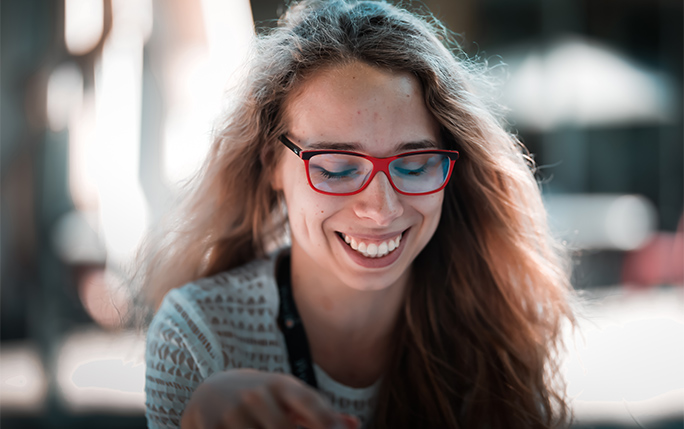AVA Fellow Interviews – Spotlight on Dominika Alfs

Now the formal period of the project has come to an end, this is a good moment to look back at the Fellows’ time with AVA. We have asked the Fellows a few questions as part of the AVA Spotlight Interview series; this will give you a more personal insight into their motivation, achievements and outlook.
For this interview we have spoken with Dominika Alfs who joined the AVA Network at Forschungszentrum Jülich (FZJ), Germany, in September 2017. She worked on the development of liquid target-based detectors in view of design studies of a detector system for hadron physics experiments induced by the annihilation of stopped antiprotons, which includes also the investigation of beam monitoring systems.
What did attract you to the AVA network? Has it fulfilled your expectations?
“Towards the end of my studies I already knew that I would like to focus on research, at least for a few more years. The AVA project clearly stood out from other possibilities. It gave the opportunity to work in cooperation with well known institutions on the projects that touched the most up-to-date problems in the field of low energy antiproton physics. But what really made AVA unique was the fact that it was a network with several cooperating institutions, a well defined program of scientific and soft skills training and, most importantly, other fellows that started to work on their project more or less at the same time. Already at the beginning it looked promising and now I can clearly see how important it was. Has the fellowship fulfilled my expectations? It exceeded them by far!”
Why did you choose to go to FZJ?
“It was the project that was offered by FZJ (Liquid Target-based Antiproton Detectors). I really wanted to broaden my knowledge about detector systems and their design. The project seemed to be a perfect combination of experimental work, experimental data analysis and simulations, where results from one area directly influence the others. Furthermore, FZJ is a large research centre conducting research in various disciplines. Joining that institution was an exciting perspective!”
Can you explain in a few words what your project was about and what have you achieved?
“My project was centred around antiproton detectors. I worked on the design of a setup for studies of the strong interaction between protons and 𝛯 hyperons. This region of baryon-baryon interaction is relatively poorly investigated due to the short lifetime of hyperons. However, it turns out that low energy antiprotons can be used to start a reaction chain that can be used for this type of studies. A special feature of this process is an increase of the number of charged particles at some distance from the target due to several delayed decays of the produced particles. This directly influences the detector design. I investigated possible solutions for the setup elements and their impact on the detector performance. I had a chance to develop Monte Carlo simulations as well as work on results of real measurements with considered elements. This work resulted in a proposal of detector geometry.”
What has AVA provided you professionally?
“Of course, I broadened my knowledge about antiproton physics, detectors, experimental methods and many more. I had a chance to work with great supervisors and scientists and I learned a lot from them. But what is equally important are also all other skills that I acquired. I worked in an international environment, prepared countless presentations, talks and reports, learned about ‘the science behind soft skills’. This gives me a lot of confidence now, when the project is formally over.”
Can you say something about your next career move?
“At the moment of answering this question I am just before my PhD defence and preparations still keep me busy. I am thinking about different options but right now COVID-19 has made planning a bit more difficult. Therefore, I would like to wait to reveal my next career move until it is certain to happen.”
What will be your most cherished memory from AVA?
“I have many great memories! But I think that the most cherished one is the first meeting of AVA in January 2018. I still remember a mixture of curiosity and excitement before. We spend about two weeks in Liverpool and Manchester participating in our first research skill training and working on the AVA video. We all learned a lot but we also had a chance to get to know each other. Now, three years later, even though the AVA project is formally over, the friendships still last and I hope that the situation will allow us to meet again soon.”